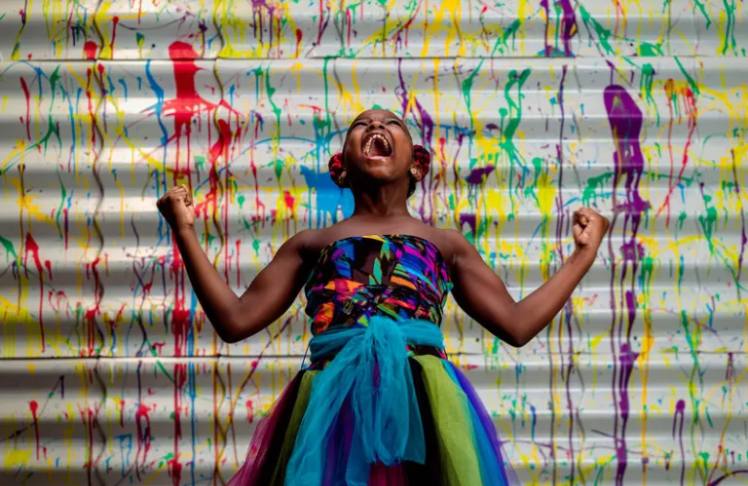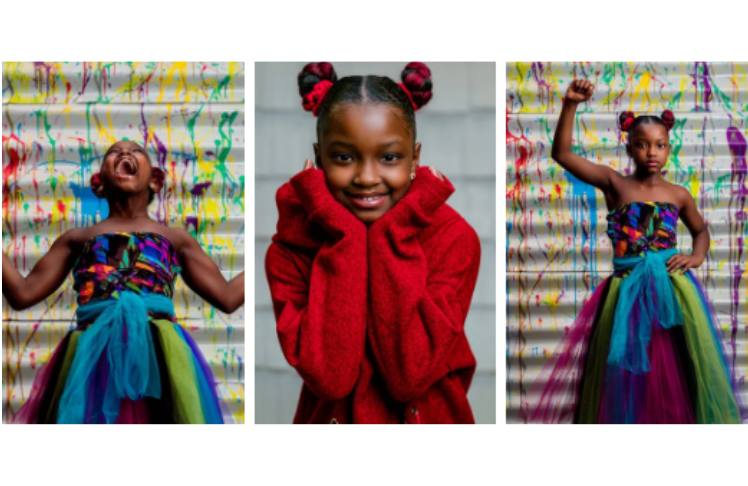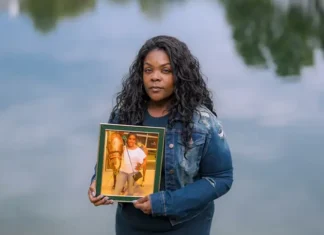
For centuries, Black folks have been pressured by society to dislike their natural hair. Things are no different for today’s youth who are bullied by peers and suspended by school officials for wearing braids, locs, afros, and other styles — all while losing self-esteem in the process.
Several state governments have addressed the issue with legislation, and companies have launched hair-positive campaigns, but hair discrimination remains an issue for Black boys and girls.
That’s why Jermaine Horton, a Chicago-based luxury photographer, founded The Art of Confidence Project — a non-profit organization that empowers youth who’ve faced discrimination to regain confidence through free photoshoots.
“These days, there are so many children taking their own lives because of a lack of confidence and feeling like they don’t have a safe space,” Horton tells Word In Black. “That is completely unacceptable.”
Since its founding in 2018, the organization has helped nearly 20 children across the country see themselves through a new lens.
It all started when Horton read a news article about Marian Scott, an 8-year-old girl in Michigan who was denied school pictures because her red-colored braids were considered unacceptable.
“I was extremely affected by her story and immediately reached out to her mom and drove up to do a free photoshoot for her to help restore the confidence that was taken from her,” Horton says.
The result? A series of photos showing Marian raising her fist in the air, clutching her blouse, and screaming at the top of her lungs — all captured in the same red braids her school turned her away in.

During every photo shoot, Horton tells the child he’s photographing to scream to release the anger built up from being discriminated against.
He then instructs them to raise their fist in pride, saying he “immediately sees a difference in the way they carry themselves.”
“The goal of photoshoots like these is to empower them to take pride in their looks and their background and have them realize that people’s perception of their physical appearance does not limit what they can achieve,” Horton says.
The internationally-acclaimed photographer recently captured Braxton Schafer, a 14-year-old who was ordered by his South Dakota high school to cut his locs or unenroll from the campus.
Braxton’s hair didn’t adhere to the district’s policy that requires boys to keep their hair length “above the eyes and not touching the collar.”

Horton says he saw the teen’s confidence restored during the photoshoot, which was made possible by a partnership with the Crown Act — legislation that eliminates race-based hair discrimination in the workplace and in schools.
“To see him light up and become empowered during the session and after seeing his photographs meant everything to me,” he says.
The health consequences of hair discrimination
Self-esteem — how a person feels about themselves — impacts decision-making, relationships, mental health, and overall quality of life.
People with high self-esteem can identify their good qualities and typically go after happiness and success. On the contrary, research has linked low self-esteem to mental health issues, such as addiction, depression, and anxiety.
Researchers at Florida State University (FSU) were able to predict future drug use in 11-year-olds who lived with low self-esteem.
John Taylor, a sociology professor at FSU, concluded that “it’s a fundamental need to have a good sense of self. Without it, people may become pathologically unhappy with themselves, and that can lead to some very serious problems.”
Multiple studies on Black girls have found negative hair experiences to be common and have a lasting impact.
A paper published in 2019 revealed that Black girls attending school in an urban, low-income community faced hair harassment during physical education classes. Some received negative comments, unwanted hair touching, or had their hair accessories taken by boys without their permission.
Those negative hair experiences reportedly impacted girls’ self-image and their participation in physical education classes.
According to the study’s author, Patricia O’Brien-Richardson, the society-imposed harassment stemmed from “pressures to constantly have straight or neatly-styled, non-sweaty hair.”
Additionally, parents of Black girls have reported negative comments from teachers when their daughters wore natural styles to school — the place where hair discrimination occurs most often for Black children.
Horton seeks to reach these children before it’s too late — before the negativity impacts their beliefs about themselves and, ultimately, impairs their future.
But he doesn’t just work with kids who’ve been harassed because of their hair. Whether it’s due to health challenges or physical appearance, he photographs any child of color that’s battling a lack of confidence.
“I want them to feel as if the exact characteristics they are being bullied for are empowering them to make a difference and pushing them toward a better and brighter future,” he says.
To set up a photoshoot session with the Art of Confidence Project, email Jermaine Horton at [email protected] or message him on Instagram at @theartofconfidenceproject.















